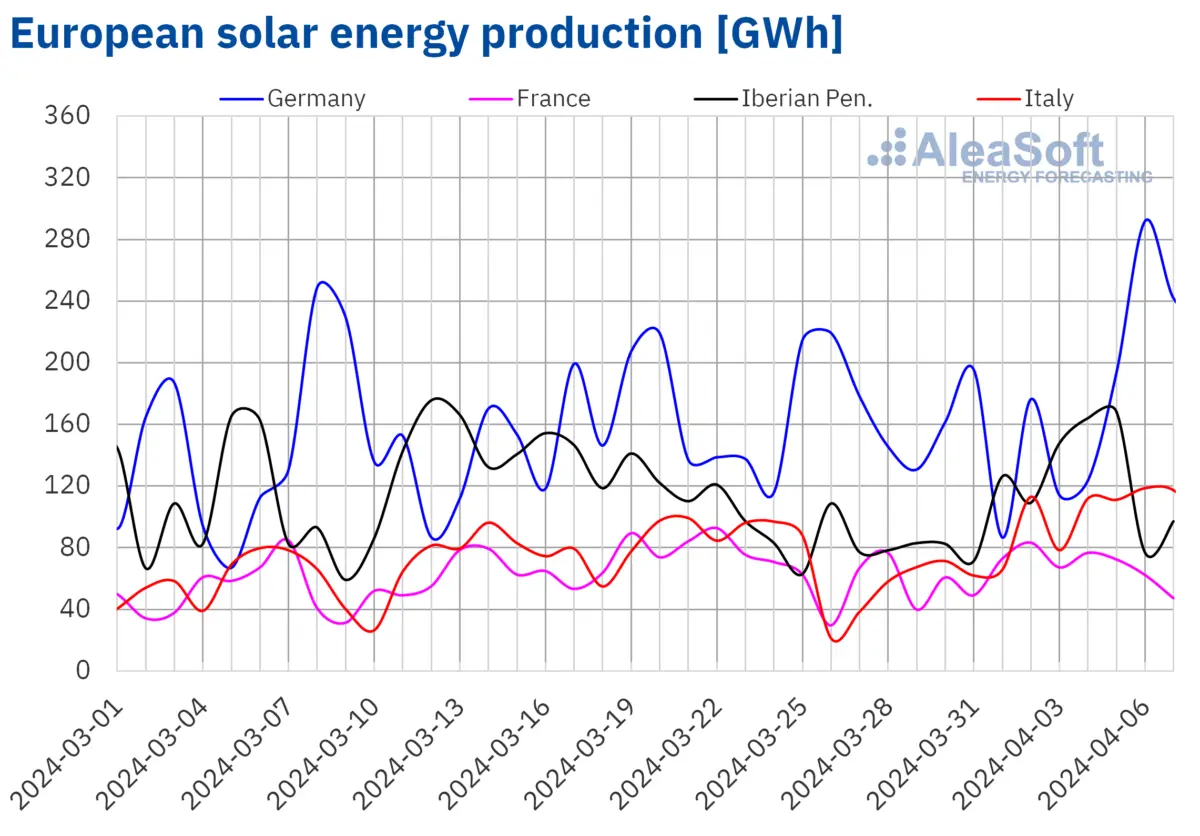“Spanish consultancy AleaSoft Energy Forecasting recorded negative hourly electricity prices for all but one European energy market it analyzed during the first week of April, including in the Spanish and Portuguese markets for the first time. It also registered an all-time production record for photovoltaic energy in Portugal and the second highest value ever recorded in Italy”
There’s no need for an army that now defends oil production. It’s going to be cheaper than water.
Water, meanwhile …
if electricity is cheap enough, we can use it to collect water back from the air.
and/or desalinate
Apparently dealing with the brine is a big issue though. Source: heresay
Evaporate to dryness and sprinkle on icy roads and/or fried potatoes?
I’m afraid that’s not how it works. You’ll have enormous amounts of really salty water that you need to get rid of. Usually you’ll just put back from where you took it thereby increasing salinity which is not good™ for ecosystems.https://www.wired.com/story/desalination-is-booming-but-what-about-all-that-toxic-brine/
The article you mentioned specifically mentions inland evaporative pool to turn those brine for road salts or other uses. But the problem is just that no one is doing it.
Collecting water from the air is not really viable in the parts of the world where lack of water is an issue since humidity is not very high there. You would need to filter huge amounts of air even just to theoretically get enough water, never mind practical concerns like efficiencies of less than 100%.
Dude, even heaters cannot get to 100% efficiency.
The point is that even with 100% efficiency (as in extracting 100% of the water the air holds) you couldn’t get enough water out of the air because the dry air simply doesn’t hold that much water.
At, say 20°C, 100% humid air only holds about 17l of water per m³ or in other words, if you are in a dry climate where the air has maybe 30% relative humidity even a device extracting 100% of the humidity from the air would yield only maybe 5l per m³ of air it processes. You would literally need to pull in 200 m³ of fresh air (as in air that has not been through your device before) to get a single m³ of water and any practical device operating at less than 100% efficiency would yield lower results than that. Also, forgot using this at much colder temperatures than that since that drastically lowers the water carrying capacity of air.
That’s 17g or 17cc per cubic metre, not 17 litres!
In dry countries the relative humidity can be low - sub 40% is common. That said, the absolute water carrying capacity increases rapidly with temperature, so at 40C, the saturation mass is more like 50g/m3 and at 40%RH it still carries more water than 100%RH air at 20C.
You are correct, I got the wrong numbers. But with your numbers of course it makes even less sense.
…heaters are the one thing that’s 100% efficient. And if you want to go even further, look up heat pumps.
I mean, kinda? What sort of heater are we talking about and how do we measure its efficiency? But, if the definition is just converting energy to heat, without specifying where the heat needs to be, then sure. Every heater has 100% efficiency. Otherwise, there will always be a loss at transport and others.
And as oil is cheap, we can use that to generate the needed energy!
…wait.
To warrrrrrrrrrrrrr
but the economy!?
Came from a shit hole country, I can’t comprehend what is the meaning of “negative electricity price”.
If the electric company set a price on electricity, let say $0.2/KWh. What stopping them from keep charging that price no matter what’s the electric production at the moment. They can even rise price when demand is high, and keep a fixed price when demand is low.
In simple terms with caveats and nuances ignored, at times there can be so much power being produced during times of low demand that the electric companies / systems will lower prices on electricity to incentivize its use. In some cases, the amount of power being generated exceeds demand so much that prices can go negative, and they essentially pay others to use it.
There are many reasons for it, and I’m hardly an expert, but essentially some power sources are unpredictable or unstable (ex: solar power is only generating during the day) and others can’t be shut down quickly/easily in response to demand. So, this is one way to deal with excess electricity production.





